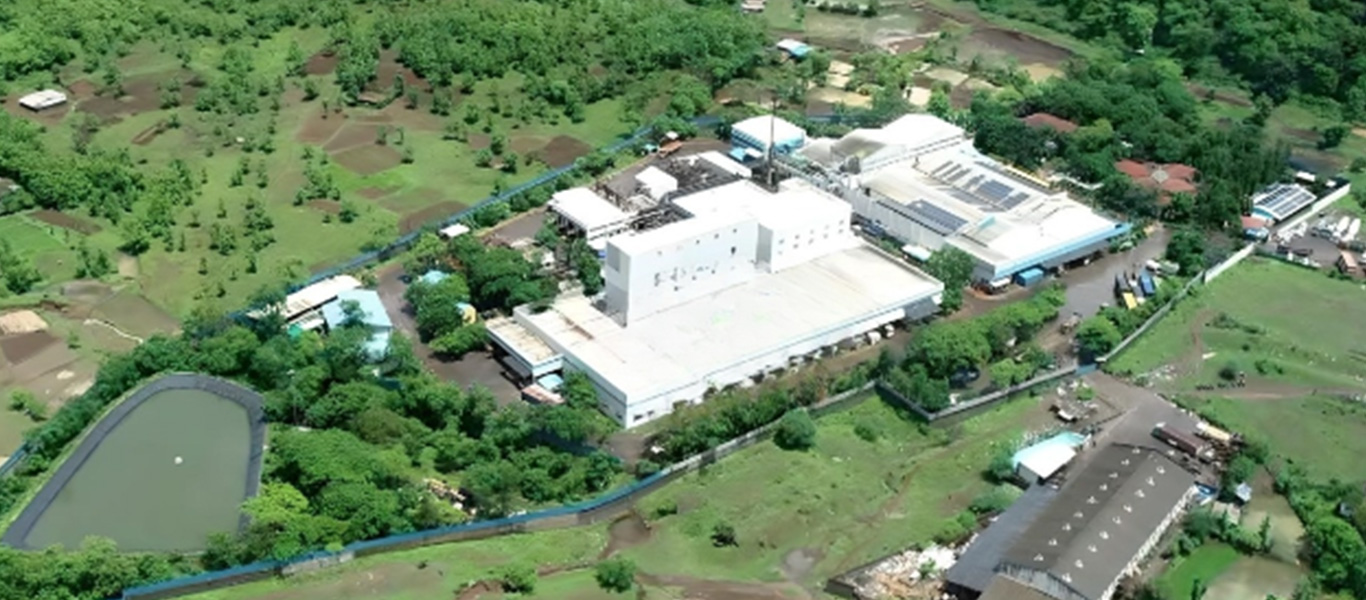
Section B
Management and Process Disclosures
Our multi-year environment, social, and governance commitments help us win with our brands as a force for good powered by purpose and innovation. Through our robust governance framework, we strive to achieve our ESG objectives, spearhead transformative change, and contribute positively to society and the environment. We are committed to using our scale and reach for good by conducting business practices that are responsible, transparent, and sustainable.
Message from Our
Leadership
“Our history embodies a narrative of growth fuelled by innovative ideas and enduring values. Our processes and policies exemplify resilience through strategic foresight, decisive decision-making, and a steadfast dedication to sustainable business practices, ensuring our long-term success.”
Srinandan Sundaram Executive Director, Foods and Refreshments


ESG Committee
at Board level

CoBP
aligning with UNGC principles and ILO guidelines

83%
Independent directors on ESG Committee

ESG Policy
approved by the Board
Policy and management processes
National Guidelines on Responsible Business Conduct Principles
PRINCIPLE 1 
Businesses should conduct and govern themselves with integrity, and in a manner that is ethical, transparent, and accountable.
PRINCIPLE 2 
Businesses should provide goods and services in a manner that is sustainable and safe.
PRINCIPLE 3 
Businesses should respect and promote the well-being of all employees, including those in their value chains.
PRINCIPLE 4 
Businesses should respect the interests of and be responsive to all its stakeholders.
PRINCIPLE 5 
Businesses should respect and promote human rights.
PRINCIPLE 6 
Businesses should respect and make efforts to protect and restore the environment.
PRINCIPLE 7 
Businesses, when engaging in influencing public and regulatory policy, should do so in a manner that is responsible and transparent.
PRINCIPLE 8 
Businesses should promote inclusive growth and equitable development.
PRINCIPLE 9 
Businesses should engage with and provide value to their consumers in a responsible manner.
| Management and Process Disclosures | P1 Ethics & integrity |
P2 Sustainable products |
P3 Employee well being |
P4 Stakeholders |
P5 Human rights |
P6 Environment |
P7 Regulatory requirement |
P8 Inclusive growth |
P9 Consumer and IT |
|---|---|---|---|---|---|---|---|---|---|
| 1. a. Whether your entity’s policy/policies cover each principle and its core elements of the NGRBCs. (Yes/No) | Yes, we have an ESG Policy, approved by our ESG Committee, which covers all National Guidelines on Responsible Business Conduct (‘NGRBC’) principles. In addition to the ESG Policy*, we also have various other policies relevant to NGRBC principles. | ||||||||
| 1. b. Has the policy been approved by the Board? (Yes/No) | Yes | ||||||||
| 1. c. Web Link of the Policies, if available | The policies can be accessed via the Link and some internal policies applicable to employees are available on our intranet. | ||||||||
| 2. Whether the entity has translated the policy into procedures. (Yes/No) | Yes | ||||||||
| 3. Do the enlisted policies extend to your value chain partners? (Yes/No) | Yes, our Code of Business Principles (CoBP) and Responsible Partner Policy (RPP) extend to value chain partners. | ||||||||
| 4. Name of the national and international codes/ certifications/labels/ standards (e.g. Forest Stewardship Council, Fairtrade, Rainforest Alliance, Trustea) standards (e.g. SA 8000, OHSAS, ISO, BIS) adopted by your entity | Our CoBP conforms to UNGC guidelines and ILO Principles | Rainforest Alliance, TrustTea, Forest Stewardship Council, Roundtable on Sustainable Palm Oil, Round Table for Responsible Soya, FSSC 22000 | Unilever Occupational Health & Safety Framework based on the OHSAS Safety Management system | Unilever Environmental Care Framework based on ISO 14001 standards | Our CoBP conforms to UNGC guidelines and ILO principles | Unilever Environmental Care Framework standards based on ISO 14001 standards | Tax Transparency policy is based on OECD principles | CSR disclosures pursuant to Section 135 of the Companies Act, 2013 | We fully align our internal cyber security standards and control framework to an industry-recognised framework (CIS top 20 Centre for Internet Security). Advertising Standards Council of India (ASCI) – Code on Fair Advertising to Consumers. (We are a founder member of ASCI) |
| 5. Specific commitments, goals, and targets set by the entity with defined timelines, if any | We have set specific Environmental, Social, and Governance
(ESG) goals, which serve as our strategy to deliver consistent,
competitive, profitable, and responsible growth. We have set an
ambitious sustainability agenda to tackle the issues that our consumers
and stakeholders care deeply about, such as climate action; protect and
regenerate nature; waste-free world; positive nutrition; health and
well-being; equity, diversity, and inclusion; raise living standards;
and future of work. ‘HUL ESG Goals’ form a part of the Integrated
Annual Report. ‘HUL ESG Goals’ form a part of the Integrated
Annual Report. |
||||||||
| 6. Performance of the entity against the specific commitments, goals and targets along-with reasons in case the same are not met | We constantly monitor the performance towards ‘HUL ESG
Goals’ and take adequate actions wherever required. We have a robust
governance mechanism to
monitor the progress of our sustainability goals. The leadership team
reports the progress to the Chief Executive Officer & Managing Director,
and Management
Committee quarterly. Our ESG Committee, chaired by an Independent
Director and comprising of a majority of Independent Directors, assists
the Board in
overseeing the vision and focus on our strategy relating to ESG as well
as monitoring the progress against the stated vision and reviewing the
policies and
practices, initiatives and goals about ESG, ensuring that they remain
effective.  For details, refer to the ESG highlights section
of the Integrated Annual Report. For details, refer to the ESG highlights section
of the Integrated Annual Report. |
||||||||
* The other policies
relevant to the respective NGRBC Principles are listed below:
P1: Code of
Business Principles (CoBP), Policy on Conflict of Interest, Policy on Prevention of
Insider Trading (Share Dealing Code), Anti-corruption and Anti-bribery Policy, Board
Familiarisation Programme,
Corporate Governance Code, Policy on Related Party Transactions, Whistle Blower
Policy, Policy for Determination of Materiality of Events, Code of Conduct for Board
and Members of Senior Management
P2:
Responsible Partner Policy (RPP), Business Partner Code, Quality Policy
P3: CoBP,
Safety & Health Policy, Equal Opportunity Policy, Disability Accommodation Policy,
Parental Leave Policy, Prevention of Sexual Harassment Policy (POSH), Affirmative
Action Policy, Education Assistance
Policy, Reward Policy, Gender Transition Policy, Career Break Policy, Location
flexibility and Split Family Arrangement, Travel Policy for New Parents
P4: CoBP,
CSR Policy, Corporate Governance Code
P5: CoBP, Prevention of Sexual Harassment
Policy (POSH), Policy to Support Survivors of Abuse, Whistle Blower Policy, Board
Diversity Policy
P6:
Environment, Health & Safety Policy, CoBP
P7: CoBP, Anti-trust and Fair
Competition (as part of CoBP)
P8: Supplier Diversity & Inclusion Programme, CoBP,
CSR Policy
P9: Cyber Security Policy, Data Privacy Policy, Quality Policy
7. Statement by director responsible for the business responsibility report, highlighting ESG related challenges, targets and achievements
Dear Stakeholders,
am pleased to share our Business Responsibility and Sustainability Report (BRSR) for the FY 2023-24. The Report aims to inform you of our sustainability performance. Our purpose is to make sustainable living commonplace. We are commit ted to sustainable growth by delivering products that meet the evolving needs of our consumers while minimising their impact on the environment. We firmly believe that sustainability and profitability go hand-in-hand.
Our business strategy charts a clear pathway for us to embed sustainability into our multi-stakeholder model we have set forth a series of multi-year, time-bound commitments focused on vital areas such as driving climate action, protecting and regenerating nature, waste-free world, positive nutrition, health and wellbeing, equity, diversity, and inclusion, raising living standards, and the future of work. These goals are anchored on three fundamental pillars: improve the health of the planet, improve people’s health, confidence, and wellbeing, and contribute to a fairer, more socially inclusive world.
We believe that corporates will need to play an important role and partner in the nation’s growth by integrating environmental and societal actions into the very fabric of their business. In fact, the job to be done for India Inc. today – goes far beyond business growth. We must protect the planet, the people – in our value chain and the communities in which we operate.
At HUL, we have made significant progress against ‘HUL ESG Goals’. In our manufacturing operations, we have reduced our CO2 emissions by 98% (per tonne of production), water usage by 47% (cubic metre per tonne of production) and total waste generated from our factories by 58% (per tonne of production) in FY 2023-24 compared to 2008 baseline. We are committed to Sustainable sourcing of our key crops; in this fiscal, 94% of our paper and board in packaging, 81% of our tomatoes and 79% of tea came from sustainable sources.
We are continuously trying to ensure that the growth of the business does not adversely affect the environment. In our journey towards net zero, we recently announced our collaboration with key chemical companies to pilot the production of near-zero emissions synthetic soda ash – a key ingredient in laundry powder. We also asked some of our key supply partners to pledge to work with us on emissions reduction by joining our global Supplier Climate Programme. Through the programme, we will provide tailored support aligned with industry standards, help upskill them, and develop their emissions reduction plans, to measure and share footprint data for the raw materials we buy.
We have been taking steps to address the problem of plastics as well. As a packaged goods company, we are cognisant of the significant role plastic plays in our business. But simultaneously, we realise the environmental damage it can cause. We are committed to using more recycled plastic. We aim to bring plastics into the circular economy, allowing plastic packaging to be recycled and reused.
Securing the future of water is a crucial aspect of fighting climate change. At HUL, we are determined to play our part. Through the Hindustan Unilever Foundation’s ‘Water for Public Good’ programme, we continue to build water conservation potential and enhance water-dependent livelihoods along with our partners. Since 2010, we have created a cumulative water conservation potential of over 3.2 trillion litres*.
We have also been working towards creating a positive social impact, not just on the environment. Project Shakti, launched at the dawn of the new millennium with the vision of empowering women in rural areas, has been a resounding success. Project Prabhat, a comprehensive community development programme focused on improving the lives and livelihoods of people living in and around HUL factories, has, to date, positively impacted the lives of nearly 10 million people.
We realise that sustainability is a continuous journey, and we all are responsible for ensuring that our growth is sustainable and inclusive. I look forward to everyone’s support in this journey to make a meaningful difference.
Rohit JawaChief Executive Officer and Managing Director
*Assured by an external independent firm.
8. Details of the highest authority responsible for implementation and oversight of the Business Responsibility policy (ies)
Our Chief Executive Office & Managing Director is responsible for the implementation and oversight of our Business Responsibility & Sustainability policies.
9. Does the entity have a specified Committee of the Board/Director responsible for decision making on sustainability related issues? (Yes/No). If yes, provide details.
The ESG Committee of the Board is responsible for oversight of sustainability-related matters. The ESG committee of the Board comprises six directors (five Independent Directors and one Executive Director).
| Sr. no. | Name of the Director | DIN | Designation | Role |
|---|---|---|---|---|
| 1. | Ashu Suyash | 00494515 | Independent Director | Chairperson |
| 2. | O. P. Bhatt | 00548091 | Independent Director | Member |
| 3. | Kalpana Morparia | 00046081 | Independent Director | Member |
| 4. | Leo Puri | 01764813 | Independent Director | Member |
| 5. | Neelam Dhawan | 00871445 | Independent Director | Member |
| 6. | Rohit Jawa | 10063590 | Executive Director | Member |
10. Details of Review of NGRBCs by the Company: Indicate whether review was undertaken by Director/Committee of the Board/Any other Committee
| Subject for review | Indicate whether the review was undertaken by the Director/ committee of the Board/any other committee | Frequency (annually/half yearly/quarterly/other - please specify) | ||||||||||||||||
|---|---|---|---|---|---|---|---|---|---|---|---|---|---|---|---|---|---|---|
| P1 | P2 | P3 | P4 | P5 | P6 | P7 | P8 | P9 | P1 | P2 | P3 | P4 | P5 | P6 | P7 | P8 | P9 | |
| Performance against above policies and follow up action | All NGRBC related Policies are reviewed by ESG Committee. Additionally, Audit Committee reviews the Code of Business Principles. | ESG committee - Half yearly basis Audit Committee - Quarterly basis (for CoBP) |
||||||||||||||||
| Compliance with statutory requirements of relevance to the principles, and rectification of any non-compliances | Compliance with statutory requirements of relevance to the principles, and rectification of any non-compliances is done by the Audit Committee | Quarterly basis | ||||||||||||||||
11. Has the entity carried out independent assessment/evaluation of the working of its policies by an external agency? (Yes/No). If yes, provide name of the agency.
| S.No. | P1 | P2 | P3 | P4 | P5 | P6 | P7 | P8 | P9 |
|---|---|---|---|---|---|---|---|---|---|
| 1 | We have a robust functional review mechanism complemented by an independent internal audit process that covers the working of all key policies. The internal audits are conducted by various external independent firms during the year. In addition to the above, relevant third-party assessments are conducted across business units periodically. | ||||||||
12. If answer to question (1) above is No i.e. not all Principles are covered by a policy, reasons to be stated:
| Questions | P1 | P2 | P3 | P4 | P5 | P6 | P7 | P8 | P9 |
|---|---|---|---|---|---|---|---|---|---|
| The entity does not consider the principles material to its business (Yes/No) | Not applicable | ||||||||
| The entity is not at a stage where it is in a position to formulate and implement the policies on specified principles (Yes/No) | |||||||||
| The entity does not have the financial or/human and technical resources available for the task (Yes/No) | |||||||||
| It is planned to be done in the next financial year (Yes/No) | |||||||||
| Any other reason | |||||||||

